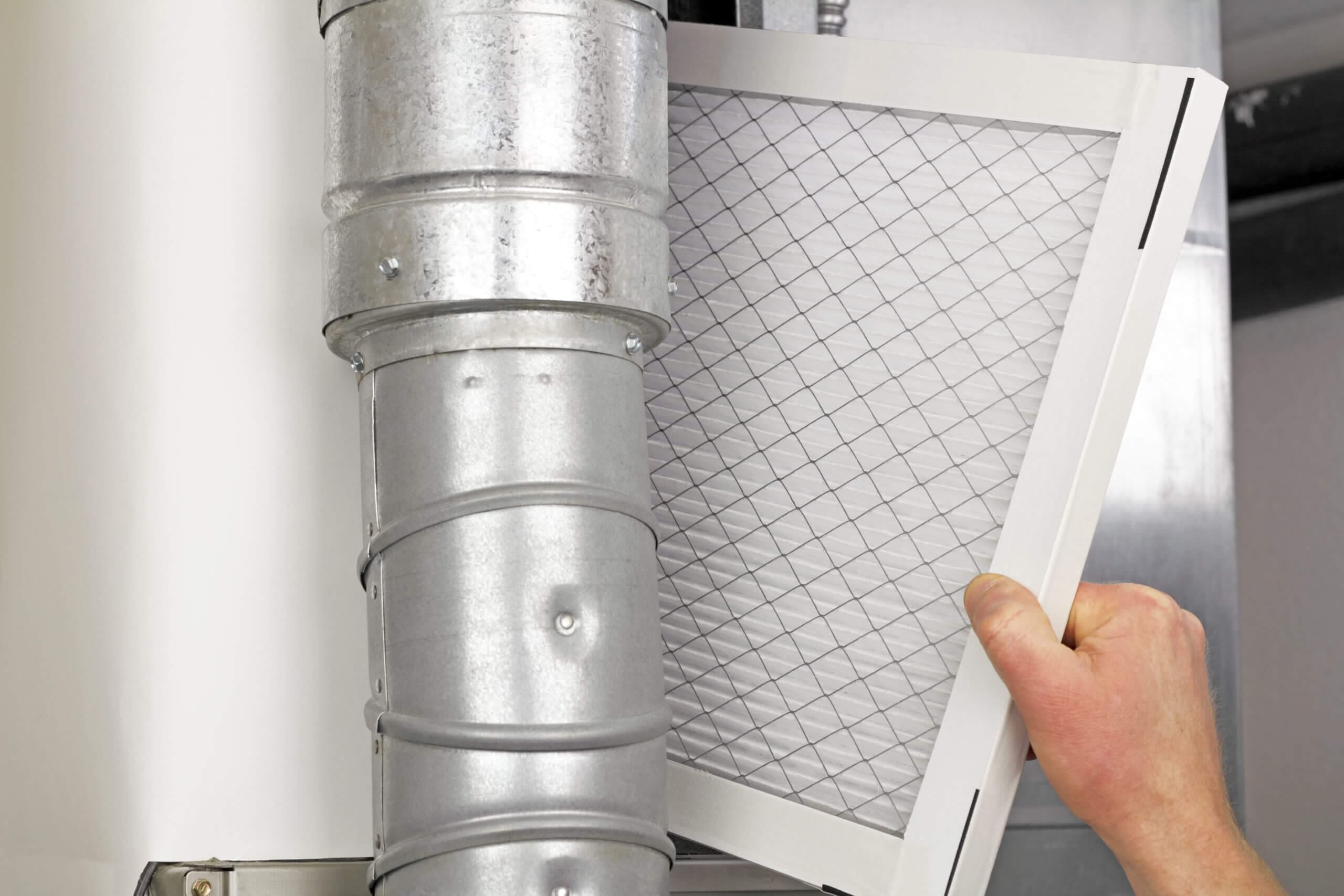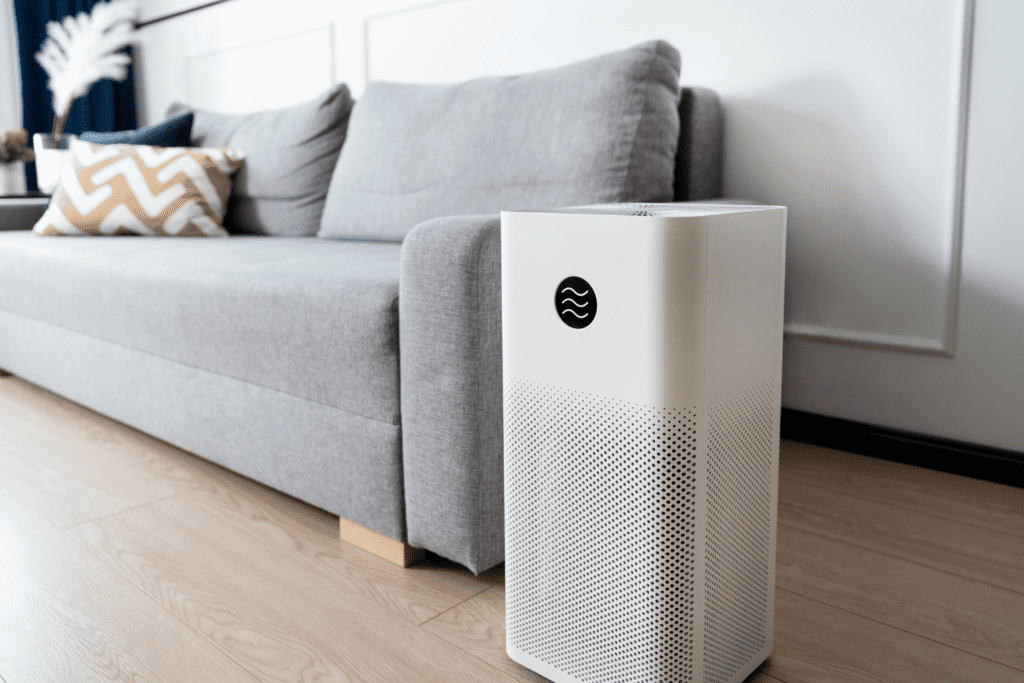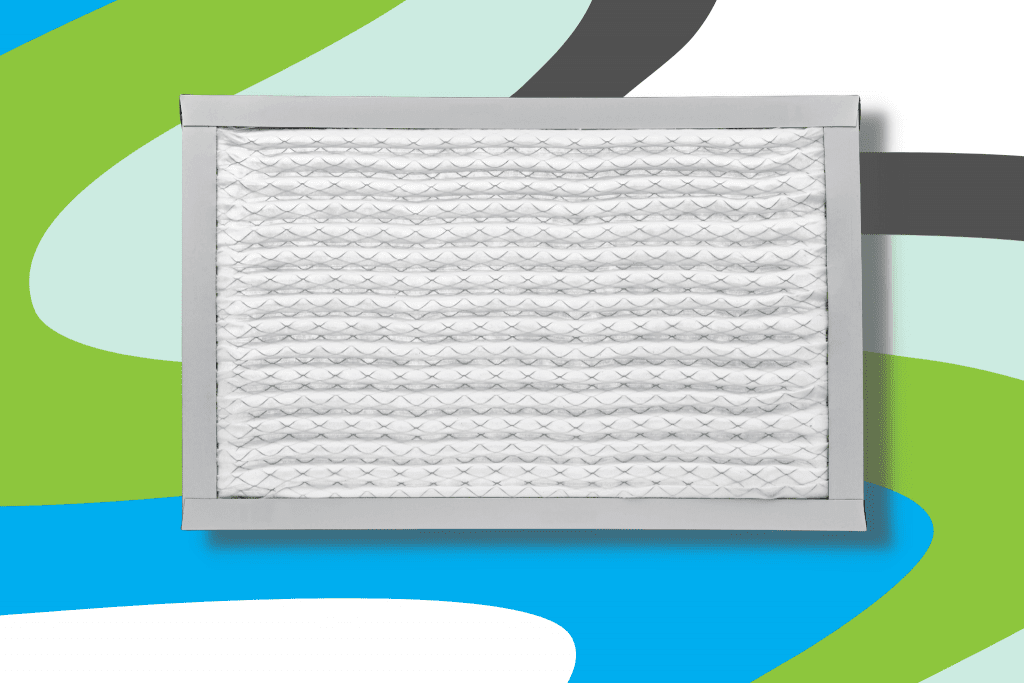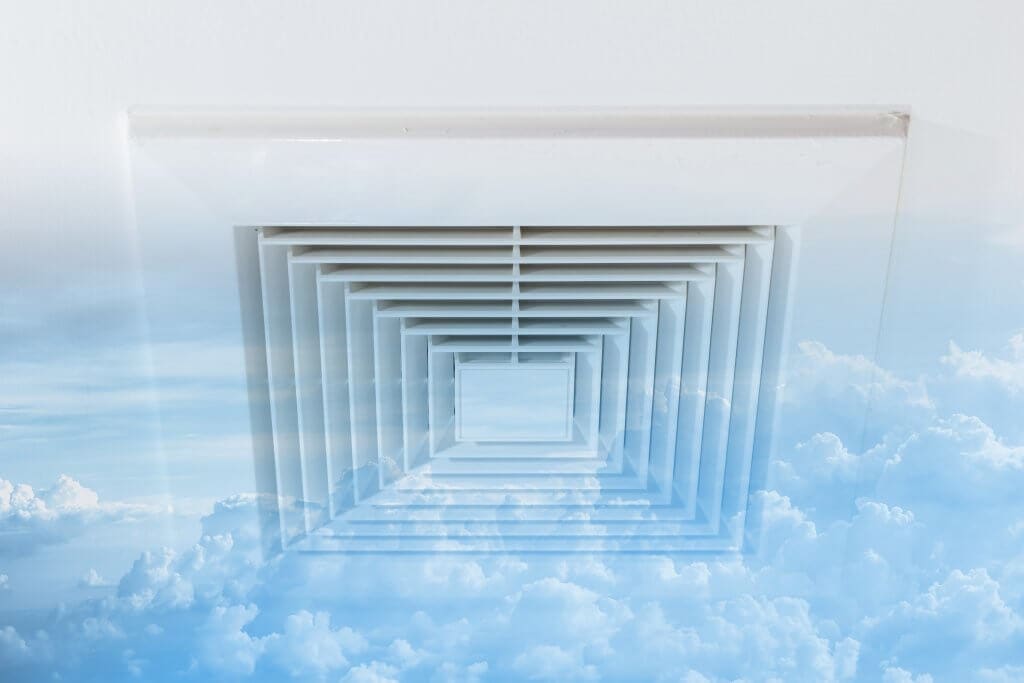If you struggle to breathe because of a health concern, you’re far from alone. Millions of Americans suffer from respiratory diseases and related health issues. Problems like asthma, COPD and allergies are affected by indoor air quality. Your solution to improve indoor air pollution starts with filtration. Specifically, what MERV rating air filter a homeowner should use. While MERV 8 is good, it is not quite enough. Respiratory health and indoor air quality have been highlighted by the pandemic. More than ever before, you need cleaner indoor air.
What Is a MERV Rating?
A minimum efficiency reporting value (MERV) rating describes how efficient an air filter is. It’s a ranking system that measures a filter’s success in capturing air pollutants. These include dust, debris and other particles that circulate through your home or indoor space’s air. A general rule of thumb: filters with lower MERV ratings only catch larger particles, while those with higher ratings catch both large and small particles. Why is this distinction important? The ideal filters capture the smallest of air pollutants, those not seen by the naked eye–as small as 0.3 microns.
MERV ratings are distributed on a scale between 1-20. Filters considered for indoor residential use are generally between 5-16. MERV 1-4 filters are practically ineffective because they only catch the largest particles, and are considered the minimum threshold for air filtration. To rid your indoor space of mold, dust and harmful bacteria, higher-rated filters are necessary. For a complete breakdown of MERV, our MERV rating guide will provide an in-depth explanation of the scale.
MERV 8: Is It Good Enough?
To answer this question, it helps to break down the entire MERV scale into smaller ranges. MERV 8 filters fall into the second range: 5-8. These filters are considered better for residential use. Because MERV 8 is at the high end of what’s deemed better for homes, it may be tempting to choose a MERV 8 air filter. After all, it’s generally less expensive than higher-rated filters.
However, it’s a bit more complicated than that. MERV 8 filters aren’t the ideal recommendation, rather they serve as a baseline of adequate indoor residential filtration.
Note that the MERV 5-8 range can only capture air pollutants that are 3.0 microns or larger. As a result, MERV 8 filters capture mid-size particles such as aerosol sprays, mold and dust. For most homes, this isn’t nearly enough. Harmful viruses and bacteria will still circulate through your home, as well as smoke and other forms of air pollution.
What Is the Alternative?
If MERV 8 filters and below aren’t good enough, then what are the other options? MERV 9-12 filters are a step up, considered superior residential air filters and capture particles as small as 1.0 microns in size. However, to truly ensure clean healthy air, MERV 13-16 filters are considered ideal for indoor spaces.
These filters can capture particles as small as 0.3 microns. This means air filters with MERV ratings between 13 and 16 capture particles that are up to 10 times smaller than what a MERV 8 filter is capable of. These particles include things like bacteria, viruses and smoke–a distinctive difference in the air quality of your home. Higher-rated filters are also more effective at catching the larger particles like mold spores, dust and pollen, making them the better option overall.
Why Are MERV 13 Filters the Best Option?
MERV 13-16 filters are the ideal range, and all capture particles as small as 0.3 microns. So why do we suggest MERV 13 specifically? Your home’s HVAC system ultimately determines what air filter you can use. For most, MERV 13 is the best clean air upgrade while still functional for residential systems.
 Ditch the dust and allergens! MERV 13 filters offer superior air quality by trapping microscopic particles like pollen, mold spores, and even some bacteria. Breathe easier and live healthier – Shop MERV 13 Air Filters →
Ditch the dust and allergens! MERV 13 filters offer superior air quality by trapping microscopic particles like pollen, mold spores, and even some bacteria. Breathe easier and live healthier – Shop MERV 13 Air Filters →Install the Right Air Filter
Your home air filter is crucial to the health, cleanliness and wellbeing of your indoor space and occupants. We often overlook indoor air quality, yet the air circulating within our homes has a significant impact on our health. And cleaner air depends on air filters.
The amount of particles that air filters can eliminate from your indoor space is extensive. It includes pollutants such as bacteria, smoke, indoor appliance fumes and toxic particles from paints, adhesives, cleaning products and the building materials in your home. In 2020, perhaps the most crucial use for air filters is to capture and eliminate viruses and bacteria from air circulation. Air filters are an essential step to fight and protect against covid-19 and airborne virus transmission.
Using the Right Air Filter Is Cost-Effective
There are also additional non-health-related benefits to keep in mind. Better filters will save you money in the long run. Higher quality filters last longer, which saves you money on maintenance, repair and replacement. Paying more upfront will save you money in the end.
Though a MERV 8 filter seems like a decent choice initially, know that MERV 13 filters are the better option. Upgrading to a MERV 13 filter is both cost-effective and the most efficient choice to ensure clean quality air for your indoor space.






